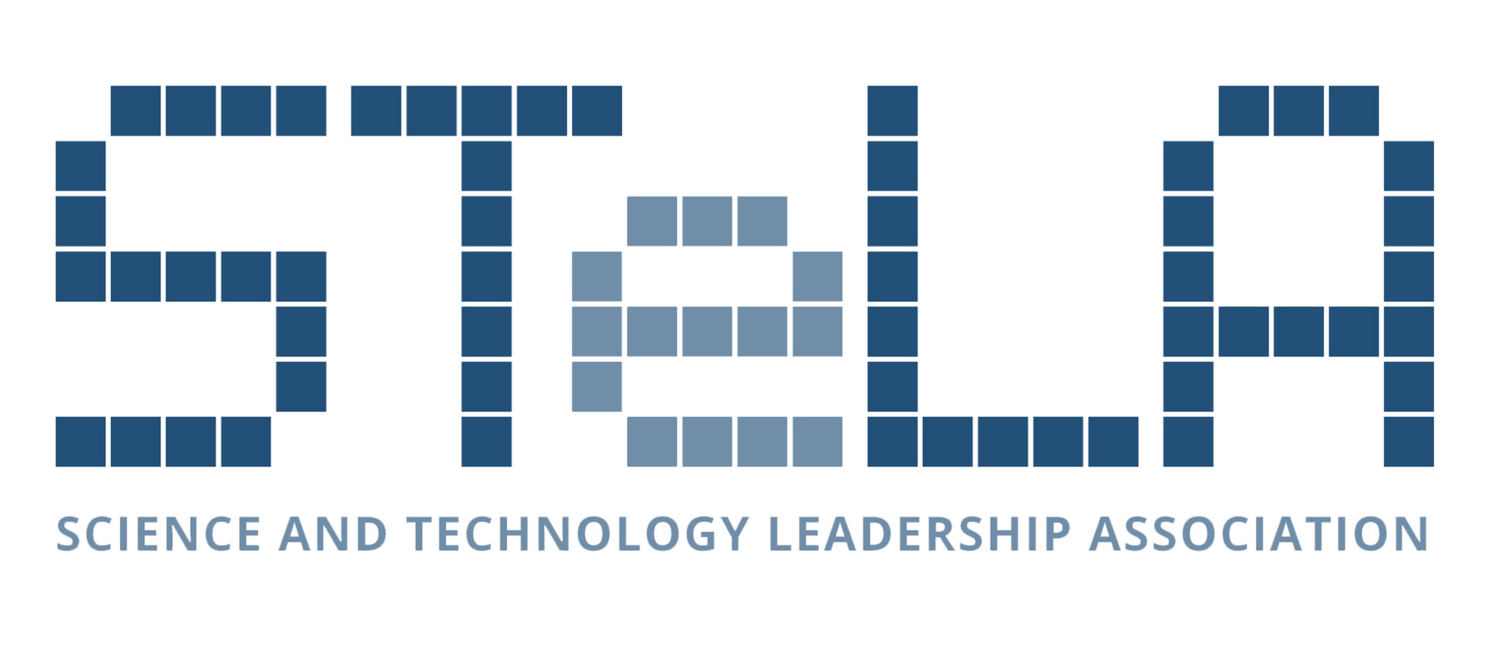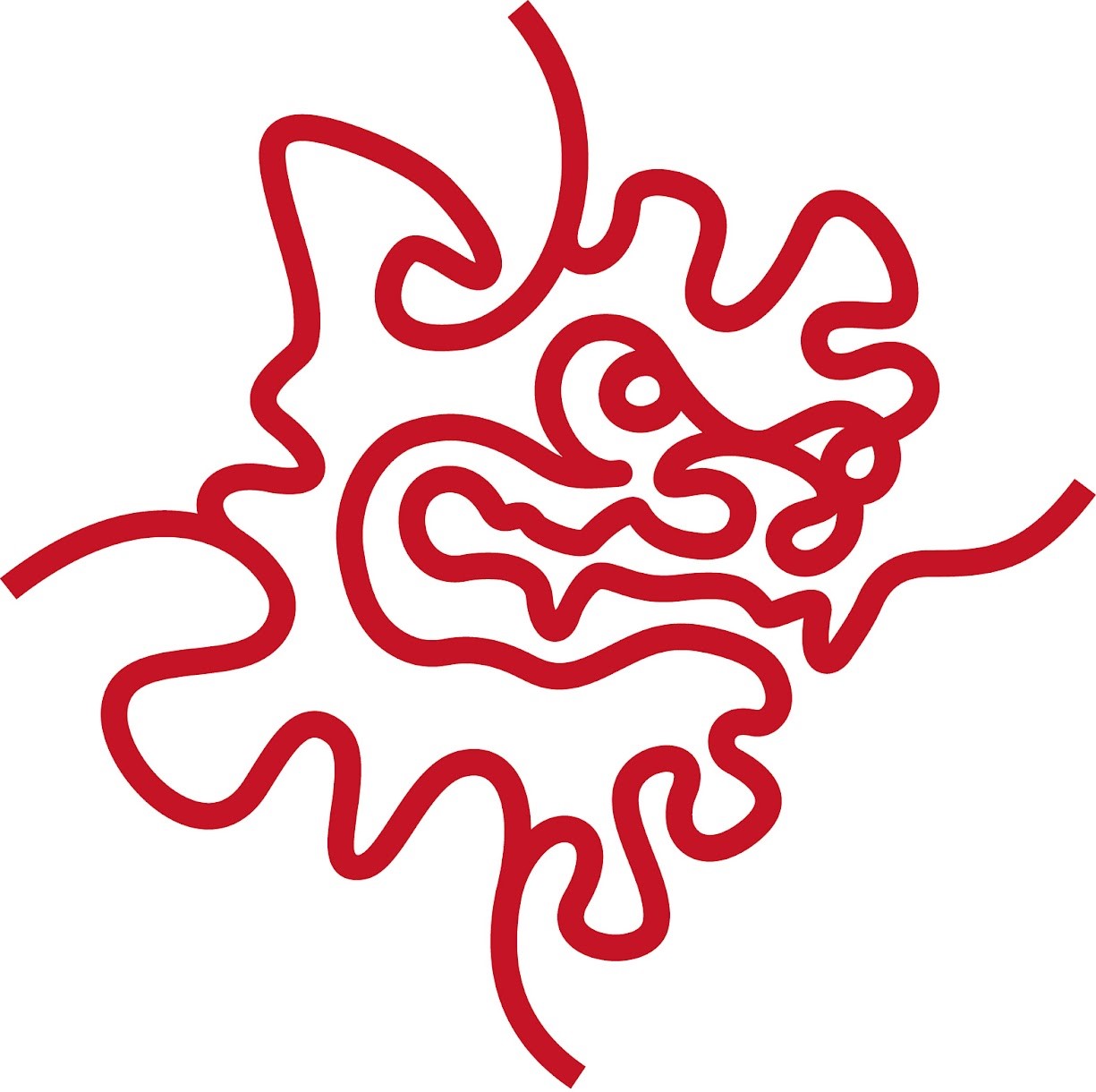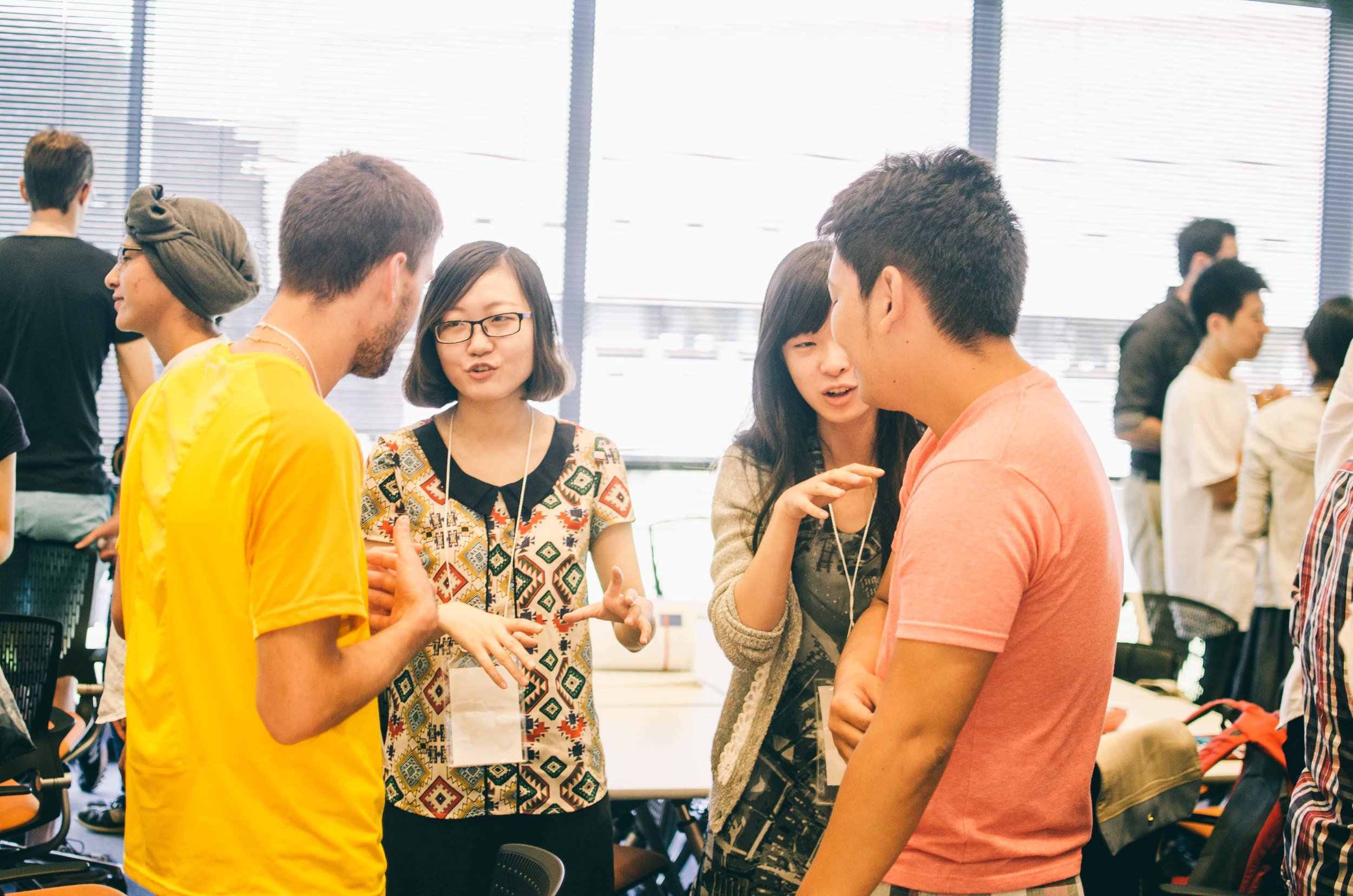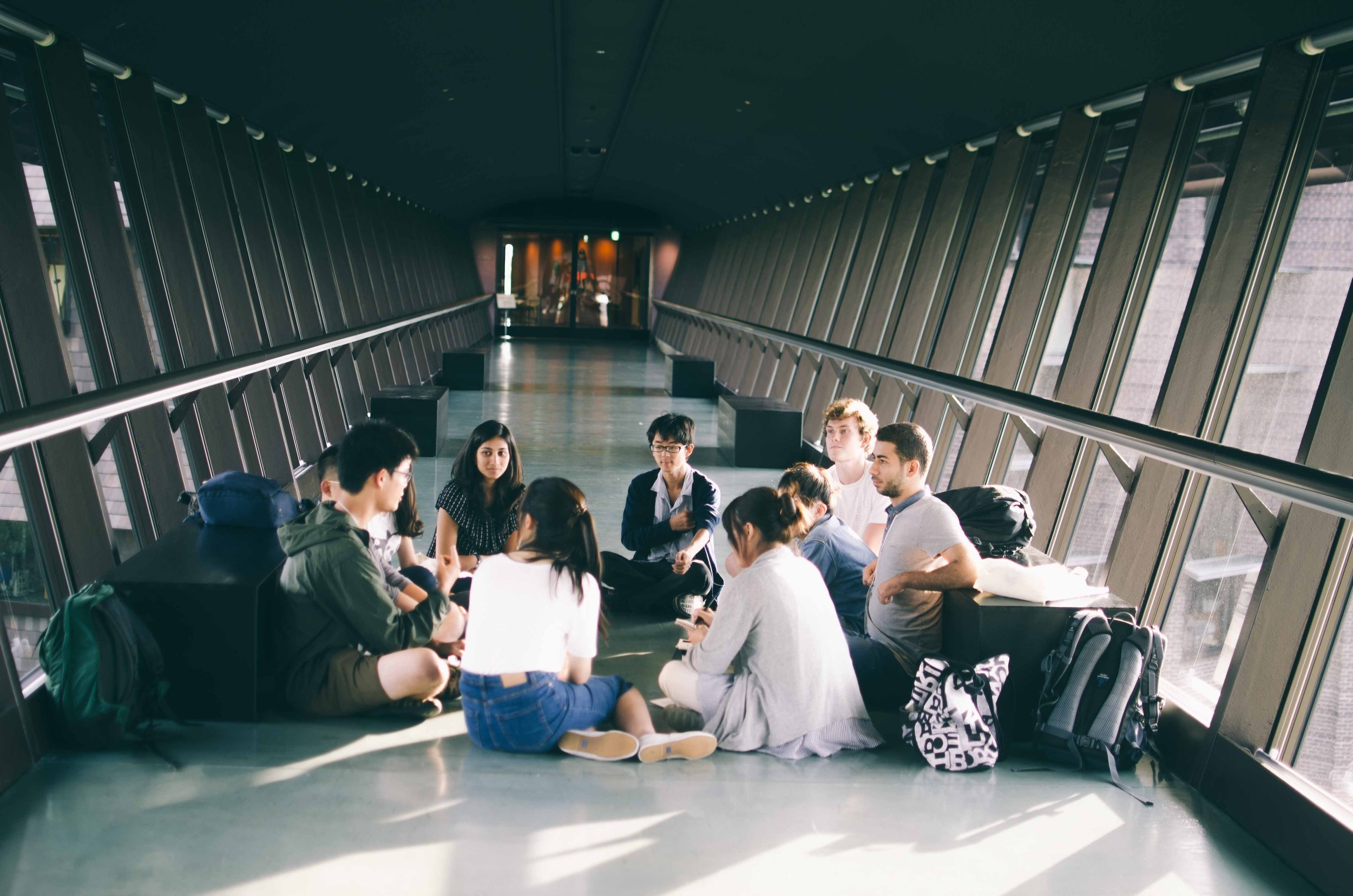This year’s forum was held in Okinawa’s Institute of Science and Technology (OIST). The forum involved 40 participants from varied academic and cultural backgrounds. The group of participants consisted of the best undergraduate, master’s and Ph.D. students from some of the best universities from countries like Netherlands, China, Japan, Australia, United Arab Emirates and more. The students were from fields such as Engineering, Biology, Finance & Economics, Medicine, Social sciences, Law, and many more. This diversity resulted in interesting interactions between the participants which, in turn, developed their ability to connect with people from the cultures represented in the forum. Also, this variety created a unique working environment for the participants which is an important factor of the forum.
This year’s keynote speakers included Dr. Jonathan Dorfan, CEO and President of OIST, Dr. Machi Dilworth, Vice President for Gender Equality and Human Resource Development at OIST, and Dr. Hiroaki Kitano, Professor at OIST. Prior to joining OIST, the keynote speakers held esteemed positions at world-renowned research organizations. Dr. Dorfan was a Professor of Physics, Associate Director of the Stanford Linear Accelerator Center (SLAC) and Dean of the Executive Cabinet at Stanford. Dr. Dilworth worked for 24 years at the U.S. National Science Foundation (NSF), during which she held a number of positions including Director of the division of Biological Infrastructure, Deputy Assistant Director for Mathematical and Physical Sciences, and Director of the Office of International Science and Engineering amongst others. Dr. Kitano is a President & CEO at Sony Computer Science Laboratories Inc., Corporate Executive at Sony Corporation, a President at The Systems Biology Institute, and a group director for Laboratory for Disease Systems Modeling at RIKEN Center for Integrative Medical Sciences. Also, Dr. Kitano is known for founding RoboCup, a global grand challenge program on robotics & AI, for creating Sony’s AIBO robot, as well as pioneering Systems Biology.
Thematic Sessions
The theme of this year’s forum was “The future of Science and technology”. Every year the theme is realized through the Thematic Sessions. These sessions allow the participants to practice the core concepts taught during the forum within a certain scope. Also, these sessions offer the participants a chance to learn about and discuss topics related to the theme. This year’s thematic sessions are described in this section.
A New Community for Science and Technology Development
Information technology (IT) has changed the ways in which we share information, both in our private life and in the world of science and technology research. IT also has the potential to provide these communities with more efficiency and innovation in their research, and might help in avoiding research misconducts by sharing information amongst scientists.
In this session, each team was tasked to propose a new platform to organize the scientific community, using technology to contribute to solving issues such as unreliable peer reviews or overworked PhD students. This was done by analyzing the current available platforms and forecasting the trend of the future science community.
Medical Innovation in Okinawa
Being an island hundreds of kilometres away from the mainland of Japan, Okinawa is not able to offer the full range of healthcare services that is available within the Japanese community. This session was focused on a roleplay concerning one of the latest innovations in medical science: The Da Vinci surgeon machine.
Playing the roles of a surgeon doctor, a hospital chief, government officials and inhabitants of Okinawa, participants are tasked to discuss the introduction of this surgery technology into the medical environment of Okinawa by 2025. All stakeholders have widely varying merits and demerits, which made the task of reaching common grounds challenging. The end goal was to create a medical plan detailing the rules and regulations for the medical environment of Okinawa up to the year 2025.
The Ethics of Automation
When asked about the future of technology and society, many people will start talking about robots and automation. This field has many concerns, as technologies such as self-driving cars are on the brink of becoming commonplace in modern communities. Concerns that arise with this development are understandable, but can be interesting when compared to technology that is widely accepted in our society: aircraft autopilots.
This session encouraged discussion amongst participants about the ethics of automated technology. What should and shouldn’t technology be allowed to do? And who would be to blame if things go wrong?
Think Extreme!
“The people who are crazy enough to think they can change the world, are the ones who do.” - Dr. Hiroaki Kitano
Based on the inspiring talk given by Dr. Hiroaki Kitano, professor at OIST and founder of RoboCup, this session on Think Extreme aimed to put his lecture into practice. The essence of his lesson: be creative, be ambitious, and above all, be courageous.
For this session, participants had to create a concept for an “extreme” product. This process involved collaborative brainstorming and the concept was presented using an A4 sized poster. Following that, the participants evaluated each other’s ideas and based on the feedback obtained, they could reflect on what makes a good “extreme” product. Also, this session allowed the participants to practice selling their ideas to large crowds.
Site Visits: OIST Campus Open Energy System & Labs tour
During the site visit for the 2016 STeLA forum, participants and staff were shown around inside and outside the Okinawa Institute for Science and Technology. The lab tour covered the Open Energy System and the OIST laboratories.
The Direct Current-based Open Energy System (DCOES)tour showed us a whole new type of energy grid, built from the bottom up. The DCOES is an alternative way of exchanging energy inbetween energy subsystems in order to manage energy fluctuations within the community. OIST is testing DCOES concepts and implementation at the platform in Okinawa where 19 inhabited houses are equipped with individual microgrids and interconnected using DC power bus. Supply and demand are balanced autonomously without impacting the utility grid and thus energy autonomy is increased with minimal infrastructure costs. The concept and feasibility of an OES have been demonstrated in this decentralized, peer-to-peer system in Okinawa. On 2-3 February 2015, the project members held the 2nd International Symposium of Open Energy System where they first demonstrated the autonomous power exchange on the full-scale system. A visualization for monitoring the power flows and the power exchanges in real time has been implemented.
Additionally, the tour included a visit to several research labs in OIST. The OIST research program aims to be at the leading edge of science and technology, encompassing the life sciences, the physical sciences, the environmental sciences, and mathematics.
OIST’s mandate of collaborative, boundary-free research is built into every element of the campus design and layout. Flexible workspaces and shared equipment keep disciplines from clustering, while grouping major research instruments helps maintain equal access.
The laboratory units of the following professors have been visited during the site visit:
- Hiroaki Kitano PhD (Integrated Open Systems Unit)
- Ichiro Masai Ph D (Developmental Neurobiology Unit)
- Yohei Yokobayashi Ph.D (Nucleic Acid Chemistry and Engineering Unit)
- Keshav M. Dani Ph.D (Femtosecond Spectroscopy Unit)
- Ye Zhang Ph.D (Bioinspired Soft Matter Unit)










